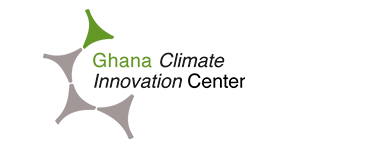“Our lives begin to end the day we become silent about the things that matter.” Martin Luther King Jr
The 6-months Women Entrepreneur Transformation Programme (WETP) at the Ghana Climate Innovation Centre (GCIC), run by leadership coach and facilitator Rachel Allan, covered the following topics centered around leadership and focused on the unique experience of female leaders: accessing inner leadership, self-awareness and self-care, mindset and perspective, overcoming challenge and failure, building resilience and the role emotional intelligence plays in leadership, and, finally, speaking up.
The WETP is an integral part of GCIC’s agenda to provide the innovative women entrepreneurs of its cohort – eight in 2018 – with the technical and advisory services that allow them to elevate their entrepreneurial journey — and to become extraordinary leaders. The programme aimed to unleash the untapped potential of female entrepreneurs. It guided the participants to transform their leadership to a more authentic one. The process encouraged them to speak up, speak their truth, and, as authentic leaders, have an increased impact in the world.
Speaking up built on the learnings of the previous months, where the participants explored, discussed and identified their life purpose, and how this links with professional purpose, as well as authenticity, among others.
As leaders, we set the tone for the culture of our businesses. Awareness and conscious choice will help us communicate – with the aim to create an environment which engages and inspires staff to be themselves, share their views, speak up, find solutions and take ownership for their actions, and to, ultimately, achieve better results.
“Inspire the hearts and minds of your teams through human-ness, story-telling and intentional communication. You can create connection and action, even if the message is difficult. Connect your personal values and the company values to find the why of your message,” -Rachel Allen.
The session on speaking up encouraged participants to find their most compelling selves, the one who “dares to know”, who can show up with a message in service of the audience.
As part of the programme, Rachel interviewed Rona Steinberg from Ginger Public Speaking who suggests that authentic self-expression is the ultimate key, and, as speaking up can be daunting, often the “traditional” rules and tips on public speaking can make us even nervous in the first place.
Rona explained the following qualities in a successful public speaker:
- Awareness: What’s happening internally when you are about to speak publicly, and the impact that it has on the outside? For example: nervous pacing and strange body movements that can happen unconsciously as we stand in front of an audience.
- Authenticity: Be yourself, be real, be truthful. It’s like an investigation. Find your authentic purpose. Ask yourself: How and when was I being my most authentic self? What am I here to do? What do I believe?
- Empathy: Take the time to consider the need of your audience. Why are they listening to you? Design your talk accordingly. We promote being a servant speaker: everything is said in service of what we think the audience wants and needs.
- Fearlessness: This is not about not being scared. It’s about being outside your comfort zone. Step into the zone of possibility, be willing to do something a bit different, share a bit about yourself, and show your human-ness as a leader. Fear will come up, it’s a primal and natural human reaction. If you share emotions, speak from your scars not from your wounds. Share your lived experience, in a processed way.
- Freshness: You can deliver a great talk, but it can be a bit dull. We want you to be memorable. So, be original, use props, stories, humour. Story-telling is the quickest, easiest way to peoples’ hearts.
- Balance: Structure your talk; you need to know where you are taking people, you need to know the journey. Everything you say in the talk is in service of your message.
All these qualities work together in delivering your message. But we will also encounter situations, when we have to deliver a message we might not necessarily identify with 100%. If that is what you have to do, think about your audience, share how it makes you feel, empathise with them, and inspire them.
Michelle Obama’s talk at the 2016 democratic convention was recommended to watch: “She is incredible natural, heartfelt, intelligent,” says Rona.
Concluding not only the speaking up session, but also the WETP programme, Rachel recommends: “Leadership is about relationship. It’s about inspiring action. As leaders, we all need to bring more of ourselves into the workplace. Remember: you create your world in every moment. Lead yourself and others from the inside out, and always, always, always speak up! Ask for what you need, design your relationships, and go do what you do best.”
The Ghana Climate Innovation Centre (GCIC) is a pioneering business incubator whose objective is to support entrepreneurs and ventures involved in developing profitable and locally appropriate solutions to climate change mitigation and adaptation in Ghana. The Centre’s key focus is on building businesses operating within the areas of energy efficiency, domestic waste management, solar energy, water supply management and purification and climate-smart agriculture. GCIC is part of the World Bank Group’s infoDev Climate Technology Program. Supported by the governments of Denmark and the Netherlands, the Centre is managed by a consortium led by the Ashesi University College and including Ernst & Young, SNV Ghana, and the United Nations University Institute for Natural Resources in Africa.
The GCIC Women Entrepreneurs’ Transformation Programme (WETP) is one of the mentoring and coaching programmes created by the GCIC on the belief that inner leadership creates outer impact, and aims to unleash the untapped potential of female entrepreneurs. The 2018 programme is created in partnership with global leadership transformation facilitator and coach Rachel Allan.

